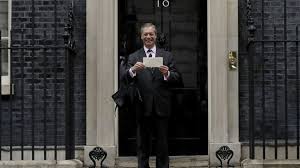Understanding the Impact of Nigel Farage on British Politics

Introduction
Nigel Farage is a significant and polarising figure in British politics, known primarily for his role as the leader of the UK Independence Party (UKIP) and his prominent involvement in the Brexit campaign. His advocacy for the UK’s departure from the European Union has shaped political discourse and voter sentiment in the UK. Understanding Farage’s political journey sheds light on the current state of British politics and the ongoing debates surrounding sovereignty and national identity.
Political Background
Born in 1964, Farage began his political career as a member of the Conservative Party before co-founding UKIP in 1993. Initially, UKIP struggled to gain traction, but it surged in popularity in the early 2000s, particularly due to growing public discontent with EU regulations. Farage’s charisma and ability to connect with disillusioned voters played a pivotal role in UKIP’s rise, culminating in the party winning the most votes in the 2014 European Parliament elections.
Brexit Campaign
The defining moment of Farage’s career came during the 2016 Brexit referendum, where he served as one of the leading voices in favour of leaving the EU. His slogan, ‘Take Back Control,’ resonated with many voters who felt that EU membership undermined British sovereignty. After the referendum, which resulted in 52% voting to leave, Farage stepped down as UKIP leader but remained a key figure in discussions surrounding the UK’s future relationship with the EU.
Recent Developments
In recent years, Farage has maintained a public presence through various media platforms, including his role as a commentator and his involvement with the Brexit Party, which he founded in 2019 to further push for a complete withdrawal from the EU. The party achieved significant success in the 2019 European elections, highlighting Farage’s continued influence in shaping the post-Brexit narrative. However, his methods and rhetoric have often sparked controversy, raising questions about nationalism, immigration, and political extremism.
Conclusion
Nigel Farage’s impact on British politics continues to be felt as debates around Brexit and national identity evolve. His unapologetic approach and ability to mobilise voters reflect deeper societal divisions that are likely to influence the political landscape in the coming years. As the UK navigates its post-Brexit path, Farage’s role as a catalyst for change remains significant, serving as a reminder of the power of populist movements in contemporary politics.
You may also like

The Important Role of Government in Modern Society

Understanding the Current Political Landscape in the UK

The UKIP Party: Recent Developments and Future Outlook
SEARCH
LAST NEWS
- Remembering Wendy Richard: The Promise to Co-Star Natalie Cassidy
- How Did Anglian Water Achieve an ‘Essentials’ Rating for Mental Health Accessibility?
- Shai Hope Leads West Indies in T20 World Cup Clash Against South Africa
- What We Know About Weston McKennie: Future at Juventus and Past at Leeds
- What We Know About the Upcoming Live Nation Antitrust Trial